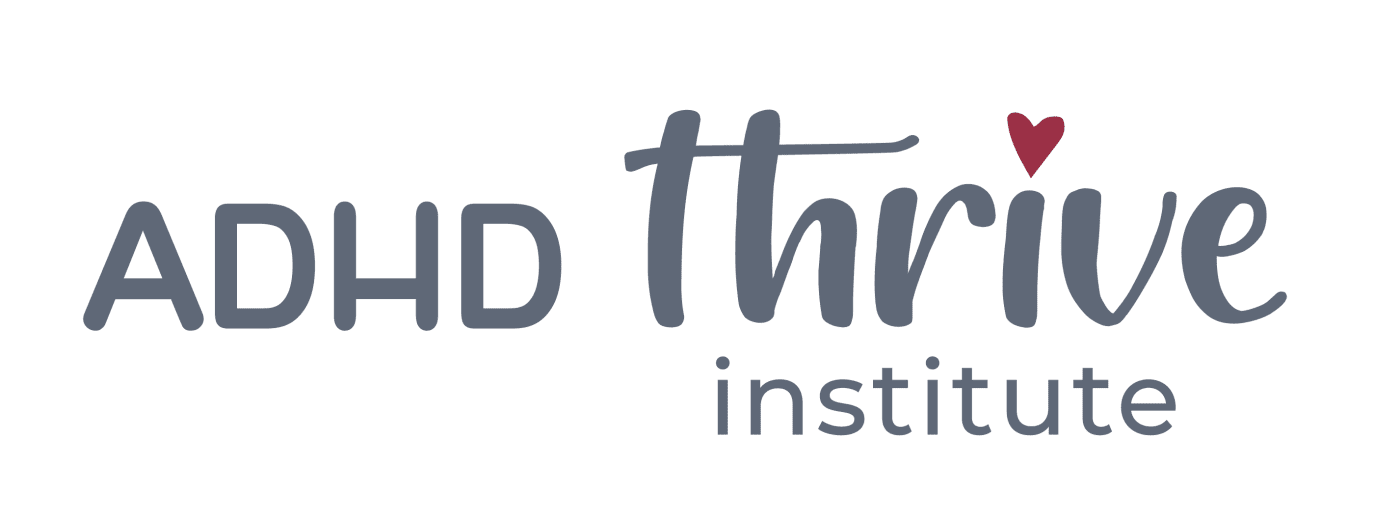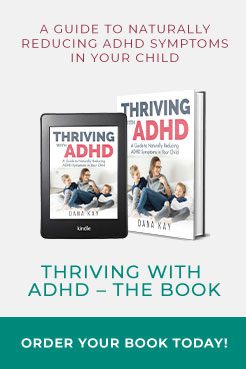I’ll never forget the moment I read this stat. It hit like a punch in the gut:
In a 2023 survey, 58% of U.S. medical students said they received zero formal nutrition education during all four years of medical school.
Zero.
The rest averaged just 3 hours per year.
That’s twelve hours total for something as foundational as nutrition.
Meanwhile, ADHD is exploding in our kids, and mounting research is linking it to nutrient deficiencies, gut dysfunction, chronic inflammation, food sensitivities, and other biological stressors.
If your doctor shrugs off natural strategies (like dietary changes, functional lab testing, etc) as irrelevant… it’s not because they’re careless or negligent (not at all!). It’s because they were never taught to look there in the first place.
And that’s a problem. Because gut health and other biological stressors in the body absolutely affect ADHD. I’ve seen it over and over, in my own family and in hundreds of families I work with.
This is why I’m so passionate about what I do: helping families understand the missing pieces most doctors don’t talk about.
Because when we stop chasing symptoms and start supporting the body, everything begins to change.
In this post, we’ll cover:
- Why most doctors never learn about ADHD and gut health
- What the science actually says about ADHD, nutrition, and gut health
- What a holistic ADHD approach looks like (and how to get started)
- How natural strategies can become a turning point in your child’s healing journey
Let’s get into it.
Most Doctors Aren’t Trained Enough in Natural Strategies for ADHD – Here’s Why That Matters
If you’ve ever brought up natural strategies for ADHD to your child’s pediatrician and felt brushed off… you’re not alone.
And it’s not because your doctor doesn’t care. It’s because they were never taught to see natural strategies (like nutrition, functional lab testing, targeted supplementation, etc) as part of the solution.
Most physicians were taught to manage symptoms, not explore underlying stressors, so even well-meaning doctors may never mention how gut health, food sensitivities, nutrient imbalances, parasites, candida, etc can affect a child’s ability to focus, regulate emotions, or stay calm.

According to the survey mentioned above, most doctors received very little (and sometimes none at all) education about nutrition and the role it can play on symptoms. Those who had some training averaged just 12 hours across four years. That’s less than the average kid with ADHD spends gaming on a weekend.
Doctors Learn What They’re Taught—And It’s Mostly About Disease
Medical training is packed with protocols and pharmacology, but when it comes to natural strategies for ADHD support (like how nutrition and gut health affect symptoms, for example), most students get a single elective, if that. Students memorize thousands of facts, protocols, and drug interactions, but when it comes to natural strategies…
- Most programs offer just one short nutrition elective—if any at all
- Less than 20% of med schools require a full course on nutrition
- The system prioritizes disease treatment, not prevention or lifestyle medicine
That’s a huge problem when you’re dealing with something like ADHD, which often involves the gut-brain connection, chronic inflammation, and nutrient depletion.
Parents Deserve a More Complete Picture
Many doctors never mention natural strategies because their training didn’t include it, so it’s up to us to explore what they missed.
That’s why parents need to become advocates, not just for their kids, but for the kind of care that actually works.
When you take a holistic ADHD approach, you shift from managing behavior to understanding biology and what the body truly needs to thrive.
Gut Health Isn’t a Side Note. It’s a Missing Link
Science now shows us that ADHD isn’t just about brain chemistry. It’s also deeply tied to what’s happening in the gut, the immune system, and the cells.
Studies link ADHD symptoms to:
- Nutrient deficiencies
- Gut inflammation and microbiome imbalance
- Reactions to common food triggers like gluten and dairy
- Blood sugar instability
- Chronic, low-grade inflammation

These are real, biological stressors that directly impact how a child thinks, feels, and behaves.
But if your doctor wasn’t trained to look at these things, they may never bring them up, let alone test for them.
It’s Time to Shift the Lens
This isn’t about blaming doctors; it’s about empowering parents.
Because the truth is, your child’s behavior is a reflection of their biology, and when you give the body what it needs, behavior often improves.
And that’s what a holistic approach to ADHD is all about.
Why Gut Health Matters More Than You’ve Been Told
For years, parents have been told that ADHD is a brain-based disorder that needs a brain-based solution. And while that’s partially true, it’s also wildly incomplete.
Because what most people don’t realize is that the brain doesn’t work in isolation. It’s connected to the gut, the immune system, and every cell in the body.
If those systems are inflamed, depleted, or overloaded, the brain struggles.
ADHD Isn’t Just in the Brain. It’s in the Body
Many kids with ADHD also struggle with:
- Nutrient deficiencies
- Food sensitivities that trigger symptoms
- Blood sugar swings that lead to mood crashes and hyperactivity
- Leaky gut and chronic inflammation that fuel behavior issues
None of that shows up on a behavior checklist, and none of it is solved by a pill alone.
But these biological imbalances are often reversible with the right plan.
Small Shifts Can Lead to Big Changes
When we nourish the body and reduce inflammatory triggers, we nourish the brain, and that’s when you start to see real changes in:
- Focus
- Emotional regulation
- Sleep quality
- Tantrums and meltdowns
- Cravings and impulsivity
What a Holistic ADHD Approach Actually Looks Like
When parents first hear the word “holistic,” they often picture something vague, maybe a meditation app or a smoothie. But holistic doesn’t mean airy-fairy. It means whole-body. It means looking at how every part of your child’s biology, environment, and lifestyle affects their brain and behavior.
It’s not about throwing out everything your doctor says, but is instead about adding in the critical pieces they weren’t trained to look for.
A holistic ADHD approach asks:
- What’s going on in the gut and the rest of the body?
- Are there nutrient deficiencies?
- Is there excessive inflammation in the body?
- Are food sensitivities quietly fueling symptoms?
- Is the nervous system overloaded or under-supported?

When we shift the lens from, “How do we control these symptoms?” to “What’s making it hard for my child’s body and brain to function?” that’s where everything begins to change.
It's About Building a Stronger Foundation
Instead of patching symptoms with short-term solutions, we focus on strengthening the foundation using the following:
- Diet: Removing inflammatory foods, balancing blood sugar, and fueling the brain with nutrient-dense meals. Check out these 2 podcast episodes to learn more about the best diet for ADHD kids: The ADHD Diet, Part 1 and The ADHD Diet, Part 2.
- Functional Lab Testing: Using functional labs to uncover hidden stressors like gut dysbiosis, food sensitivities, parasites, candida, bacterial overgrowth, leaky gut, or nutrient depletion.
- Nervous System Support: Teaching the body how to calm down and regulate, using tools like movement, sleep, and breath.
- Targeted Supplements (when needed): Only when we know what’s missing, not guesswork.
This is how we help kids feel better from the inside out without relying solely on more meds, more behavior charts, or more frustration.
When you understand what’s happening in your child’s body, you can finally start to support what’s happening in their brain.

The Bottom Line: Your Child Deserves More Than Symptom Management
If there’s one thing I hope you take away from this post, it’s this:
Your child’s behavior is not the full story, and if your doctor hasn’t talked about gut health and its effect on ADHD symptoms… it’s probably because they don’t know enough about it.
The traditional medical system simply wasn’t built to address the deeper drivers of ADHD, but that doesn’t mean you’re out of options.
A holistic approach gives you new tools, new insights, and, most importantly, new hope. Instead of masking symptoms, we support what the body truly needs.
If you’re ready to explore how nutrition, functional testing, targeted supplementation, and other natural strategies could help your child thrive, we’re here to walk that journey with you.
Two Ways to Get Started Today:
👉 Watch our free ADHD Thrive Masterclass – Learn the exact framework we use to help families reduce ADHD symptoms—naturally.
👉 Or book a free call with our team to talk through your next steps – Let’s talk about what’s going on with your child and how we can help.

You don’t have to do this alone. We’ve helped thousands of families just like yours, and we’d be honored to support yours too.
FAQs About Nutrition, ADHD, Gut Health, and What Most Doctors Miss
- Can nutrition or other natural strategies really make a difference in ADHD symptoms?
Yes! Research shows that nutrient deficiencies, food sensitivities, blood sugar imbalances, and gut inflammation can all affect ADHD behavior. Supporting the body naturally can improve symptoms, often in ways medication alone can't.
- Why hasn’t my child’s doctor talked about natural strategies to reduce symptoms?
Most doctors receive little to no education on natural strategies during medical school. That means they may not be trained to look at food, gut health, or inflammation as factors in ADHD. It’s not their fault, but it’s why many families turn to holistic ADHD options.
- What is a holistic ADHD approach, and how is it different?
A holistic ADHD approach looks at the whole child—body, brain, and environment. Instead of just managing symptoms with medication, it addresses underlying stressors like food sensitivities, nutrient deficiencies, and chronic inflammation using diet, functional lab testing, supplements, and lifestyle changes.
- What foods should my ADHD child avoid?
Every child is different, but common ADHD food triggers include gluten, dairy, artificial dyes, added sugars, and ultra-processed foods. An elimination diet or food sensitivity test can help identify which specific foods are contributing to your child’s symptoms. Or you could start here with this dietary action plan.
- How can I get started with natural strategies for ADHD?
Start by watching our free ADHD Thrive Masterclass where we explain our proven framework. You can also book a free call with our team to discuss your child’s symptoms and get personalized guidance. You don’t have to figure this out alone.
Resources:
- https://blogs.und.edu/cnpd/2024/09/diet-related-diseases-are-the-no-1-cause-of-death-in-the-us-yet-many-doctors-receive-little-to-no-nutrition-education-in-med-school/ See also – Duggan, Michael P.; Kodali, Anahita T.; Panton, Zach A.; Smith, Shannon M.; Riew, Grant J.; Donaghue, Jack F.; Leya, Gregory A.; and Briggs, Logan G. (2023) “Survey of Nutrition Education Among Medical Students,” Journal of Wellness: Vol. 4 : Iss. 2 , Article 11. DOI: https://doi.org/10.55504/2578-9333.1167. Available at: https://ir.library.louisville.edu/jwellness/vol4/iss2/11
- https://www.aamc.org/media/25711/download
- https://hsph.harvard.edu/news/doctors-nutrition-education/
- https://www.aamc.org/media/25706/download
- Cacciatore M, et al. Impact of glucose metabolism on the developing brain. Front Endocrinol (Lausanne). 2022;13:1047545. doi:10.3389/fendo.2022.1047545
- Benton D. Carbohydrate ingestion, blood glucose, and mood. Neurosci Biobehav Rev. 2002;26(3):293–308. doi:10.1016/s0149-7634(02)00004-0
- Witek K, et al. High-sugar diet, metabolism, and health impacts with focus on substance use disorder: A narrative review. Nutrients. 2022;14(14):2940. doi:10.3390/nu14142940
- Aarts E, et al. Gut microbiome in ADHD and neural reward anticipation. PLoS One. 2017;12(9):e0183509. doi:10.1371/journal.pone.0183509
- de Magistris L, et al. Alterations of the intestinal barrier in patients with autism spectrum disorders. J Pediatr Gastroenterol Nutr. 2010;51(4):418-24. doi:10.1097/MPG.0b013e3181dcc4a5
- Yulantari N, Kusuma I. High sugar intake increases ADHD symptoms: A literature study. Int J Public Health Excell. 2023;3(1):124–127. doi:10.55299/ijphe.v3i1.513
- Avena NM, et al. Evidence for sugar addiction: Behavioral and neurochemical effects of intermittent, excessive intake. Neurosci Biobehav Rev. 2008;32(1):20–39. doi:10.1016/j.neubiorev.2007.04.019
- Catassi C, et al. Non-celiac gluten sensitivity: The new frontier of gluten-related disorders. Nutrients. 2013;5(10):3839–3853. doi:10.3390/nu5103839
- Drago S, et al. Gliadin, zonulin, and gut permeability. Scand J Gastroenterol. 2006;41(4):408-19. doi:10.1080/00365520500235334
- Ijomone OM, et al. Environmental influence on neurodevelopmental disorders: Potential link between heavy metal exposure and autism. J Trace Elem Med Biol. 2020;62:126638.
- Wells PG, et al. Oxidative stress in developmental origins of disease: Teratogenesis, neurodevelopmental deficits, and cancer. Toxicol Sci. 2009;108(1):4–18. doi:10.1093/toxsci/kfn263
- Joseph N, et al. Oxidative stress and ADHD: A meta-analysis. J Atten Disord. 2015;19(11):915–924. doi:10.1177/1087054713510354
- Konofal E, et al. Iron deficiency in children with attention-deficit/hyperactivity disorder. Arch Pediatr Adolesc Med. 2004;158(12):1113–1115. doi:10.1001/archpedi.158.12.1113
- Derbyshire E. Do omega-3/6 fatty acids have a therapeutic role in children and young people with ADHD? J Lipids. 2017;2017:6285218. doi:10.1155/2017/6285218
- Rucklidge JJ, et al. Vitamin-mineral treatment improves aggression and emotional regulation in children with ADHD: A randomized controlled trial. J Child Psychol Psychiatry. 2018;59(3):232–246. doi:10.1111/jcpp.12817
- Razavinia F, et al. Vitamins B9 and B12 in children with ADHD. Int J Vitam Nutr Res. 2024;94(5–6):476–484. doi:10.1024/0300-9831/a000809
- Arnold LE, et al. Zinc for attention-deficit/hyperactivity disorder: Placebo-controlled double-blind pilot trial alone and with amphetamine. J Child Adolesc Psychopharmacol. 2011;21(1):1–19. doi:10.1089/cap.2010.0073







